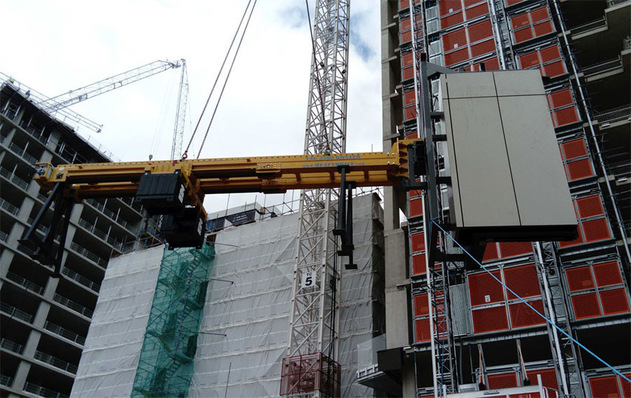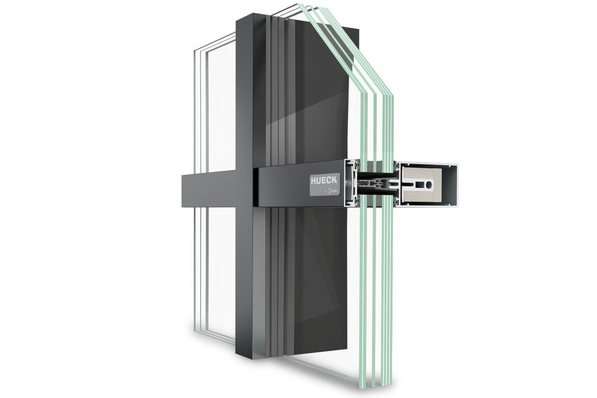With the "Elizabeth Line“ – named, of course, after her late Majesty, Elizabeth II – a new rail line is being built in Greater London. The "Whitechapel" junction of the Elizabeth underground line extends over six levels to 30 metres below ground.
Special development by Teckentrup: Special doors were required for the special pressure ventilation areas. Teckentrup developed special constructions with 5 kPa pressure protection here - in order to guarantee the air flow into the station and the tunnels, as well as fire protection.

Teckentrup GmbH
Noise is also generated via the shafts. To reduce sound transmission, Teckentrup went one step further and designed a double door solution: the DW67 door (sound insulation value R = 57 dB) was combined with a T60 door (R = 42 dB). The second door also provides security - with a pressure resistance of 5 kPa in both directions and SR3 security.
Also interesting: BAFTA headquarters in London get dynamic solar shading rooflights
The result is doors with combined protective elements that also meet UK standards. To date, Teckentrup has supplied around 2000 doors for the entire London Underground project and a wide variety of requirements. In addition to the high pressure loads and sound insulation classes, these also include fire protection closures with up to 120 minutes fire resistance (E120I290).
Standard-compliant in the UK
The doors had to be supplied with the appropriate conformity for the British standards. In particular, the stricter version of "LPS 1175" for proof of product certification posed high hurdles.
See also: Ködispace 4SG warm edge system for No. 1 Court at Wimbledon
The Teckentrup solutions meet all the specifications, including for soft impact tests, structural strength data, "U" values, cycle tests and life cycles. This tipped the scales in favour of the German manufacturer.
About the Elizabeth Line in London
The new underground "Elizabeth Line" links parts of Berkshire, Buckinghamshire and Essex with the central and south-eastern districts of Greater London. It runs for 60 miles from Reading and Heathrow in the west through London to Shefield and Abbey Wood in the east. When completed in the mid-2020s, the 'Elizabeth Line' will carry around 200 million passengers per year.

Teckentrup GmbH













